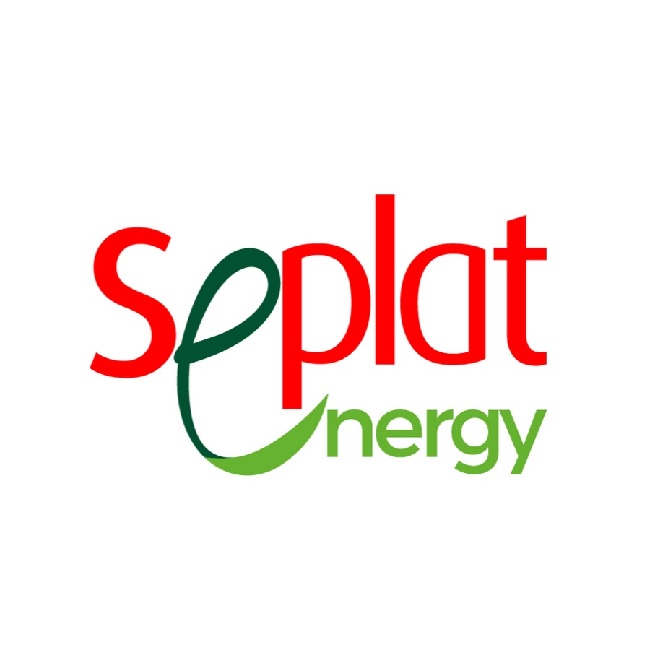Seplat Energy's transition priorities excite global stakeholders
SEPLAT Energy Plc, a Nigerian energy company listed on the Nigerian Stock Exchange and the London Stock Exchange, said its energy transition priorities remain to end flaring, monetize gas, replace diesel and biomass through cleaner fuel, to expand along the energy value chain and target smaller-scale gas-electric customers.
Roger Brown, CEO of Seplat Energy, said this while addressing global energy players at Africa Energy Week (AOW) in Cape Town, South Africa.
Brown, while delivering a keynote address on the main stage of the conference on the theme: "Energy Security in an Ever-Changing Energy Landscape," said, "As a leader in this field, our energy transition priorities are to end flaring, monetize gas, replace diesel and biomass with cleaner fuel, extend throughout the electricity value chain and target gas-electric customers on a smaller scale, while exploring new opportunities."
Seplat Energy, he noted, currently produces 300 MMscfd, which is enough to power 1 GW per day. The company's ANOH and Sapele gas projects have the capacity to supply an additional 2 GW by 2024.
"But we need to replace 20GW of diesel generation with utility-scale renewables/gas. We will develop bottled gas products to replace biomass with cooking gas and expand along of the value chain towards the production of electricity with gas and the hybrid model”, underlined the CEO of Seplat energy.
According to Brown, providing more affordable and reliable energy will boost Nigeria's economy, spur development and create jobs.
He described the Nigerian market as a huge opportunity for society, noting that with a projected future population of 500 million people by 2050, Nigeria represents a huge investment opportunity across the sector energy.
He said improving national infrastructure, increasing export capacity, increasing refining capacity, increasing gas capacity, improving the national grid, metering, billing, payments, renewable energy and clean cooking replacing biomass were obvious areas of value for the companies and the Nigerian. people and government.
Quoting from the IEA Africa Energy Report 2022, he said that the development of the African energy system offers major opportunities to stimulate the creation of decent jobs that require varied skills.
In the Sustainable Africa scenario, a total of four million energy-related jobs are created on the continent over the 2021-30 period, largely due to universal access to modern energy for households in sub-Saharan Africa and the rapid deployment of clean energy technologies, according to the IEA report.
The CEO of Seplat Energy, who also spoke at a panel discussion titled "International Oil Companies: An Overview of M&A Activity on the Continent", explained that Seplat Energy is a indigenous Nigerian operator who has good relations with government and communities; strong operating and safety record; a well-funded balance sheet through prudent financial management and strong cash; internationally accountable through dual listing and good governance; and commitment to high Environmental Social Governance (ESG) performance.
All of these elements, he noted, have given Seplat Energy credible access to international capital markets to finance operations and M&A transactions in line with its strategy.
ALSO READ FROM NIGERIAN TRIBUNE

SEPLAT Energy Plc, a Nigerian energy company listed on the Nigerian Stock Exchange and the London Stock Exchange, said its energy transition priorities remain to end flaring, monetize gas, replace diesel and biomass through cleaner fuel, to expand along the energy value chain and target smaller-scale gas-electric customers.
Roger Brown, CEO of Seplat Energy, said this while addressing global energy players at Africa Energy Week (AOW) in Cape Town, South Africa.
Brown, while delivering a keynote address on the main stage of the conference on the theme: "Energy Security in an Ever-Changing Energy Landscape," said, "As a leader in this field, our energy transition priorities are to end flaring, monetize gas, replace diesel and biomass with cleaner fuel, extend throughout the electricity value chain and target gas-electric customers on a smaller scale, while exploring new opportunities."
Seplat Energy, he noted, currently produces 300 MMscfd, which is enough to power 1 GW per day. The company's ANOH and Sapele gas projects have the capacity to supply an additional 2 GW by 2024.
"But we need to replace 20GW of diesel generation with utility-scale renewables/gas. We will develop bottled gas products to replace biomass with cooking gas and expand along of the value chain towards the production of electricity with gas and the hybrid model”, underlined the CEO of Seplat energy.
According to Brown, providing more affordable and reliable energy will boost Nigeria's economy, spur development and create jobs.
He described the Nigerian market as a huge opportunity for society, noting that with a projected future population of 500 million people by 2050, Nigeria represents a huge investment opportunity across the sector energy.
He said improving national infrastructure, increasing export capacity, increasing refining capacity, increasing gas capacity, improving the national grid, metering, billing, payments, renewable energy and clean cooking replacing biomass were obvious areas of value for the companies and the Nigerian. people and government.
Quoting from the IEA Africa Energy Report 2022, he said that the development of the African energy system offers major opportunities to stimulate the creation of decent jobs that require varied skills.
In the Sustainable Africa scenario, a total of four million energy-related jobs are created on the continent over the 2021-30 period, largely due to universal access to modern energy for households in sub-Saharan Africa and the rapid deployment of clean energy technologies, according to the IEA report.
The CEO of Seplat Energy, who also spoke at a panel discussion titled "International Oil Companies: An Overview of M&A Activity on the Continent", explained that Seplat Energy is a indigenous Nigerian operator who has good relations with government and communities; strong operating and safety record; a well-funded balance sheet through prudent financial management and strong cash; internationally accountable through dual listing and good governance; and commitment to high Environmental Social Governance (ESG) performance.
All of these elements, he noted, have given Seplat Energy credible access to international capital markets to finance operations and M&A transactions in line with its strategy.
ALSO READ FROM NIGERIAN TRIBUNE
What's Your Reaction?






















